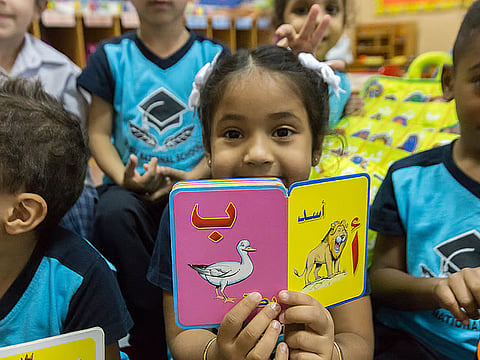AI is learning Arab culture from the wrong sources. The fix starts at home
Experts warn that AI misrepresents Arab culture unless homegrown data leads the way

Dubai: Speakers at the Dubai Future Forum warned that the Arab world risks being defined by AI systems trained on incomplete or low-quality material. The concern is not technical performance but cultural accuracy. Models built on publicly available online content tend to prioritise simplified or Western-centred narratives, limiting how they represent Arab history, identity and knowledge.
Cultural strategist and founder of afikra, Mikey Muhanna, said the problem begins with the digital record itself. Much of what exists online about the region is either reductive or incorrect, yet it becomes the foundation for AI training. “There’s so much garbage when it comes to stuff about the Arab world and about our heritage, and AI is trained on that, and it spews it up,” he said. He argued that the region cannot assume global systems will naturally preserve its nuance.
Language is where most of the loss occurs
The panel agreed that Arabic language poses unique challenges that mainstream AI systems do not address. Arabic is not a single language but a macro-language with more than 30 varieties, each tied to place, memory and identity. When AI compresses them into one standardised output, what disappears is more than vocabulary.
Yara Hassan of NaTakallam said dialects carve out emotional and cultural meaning that machines cannot replicate. “You are not just mistranslating. You are actually erasing identities, memories, experiences,” she said. She added that the way people speak in Damascus differs from Abu Dhabi or Sana’a, and teaching these differences requires human interpretation, not algorithmic shortcuts.
Hassan warned that Arabic is often forced into English-centred structures during model training, flattening its complexity. She said future systems must “learn from Arabic, not reshape Arabic to fit an English system.”
Risk of losing core skills if it outsources curiosity
The speakers pointed to a different kind of loss - intellectual muscle. Muhanna noted that over-reliance on generative systems weakens the skills that support cultural continuity, including curiosity, verification and independent research. “We are going to be the generators of sloth, not AI,” he said, adding that the danger is not what AI answers but what people stop doing because the answers arrive too easily.
Emirati inventor and creative technologist, Fatima AlKaabi echoed that sentiment. While she sees AI as a powerful tool for discovery, she warned that younger users risk letting it replace foundational learning. “I noticed over time I was depending on it on everything,” she said. AlKaabi said part of the solution is using AI to deepen engagement with family histories, poetry, and local knowledge, and not to replace the process itself.
A region-led data effort is the only safeguard
Despite the concerns, the speakers agreed that accurate cultural representation will not emerge unless Arab institutions, creators and communities build the datasets themselves. AlKaabi highlighted the need for culturally grounded archives that reflect real experiences, languages and traditions. Hassan said linguistic diversity must be treated as a design principle, not an afterthought. Muhanna urged a shift away from replicating Western narratives toward documenting richer, more contradictory stories that reflect the region’s reality.
Their collective view was that AI will inevitably shape how future generations understand Arab identity. The region’s only defence is to produce, preserve and own the data that defines that identity.




